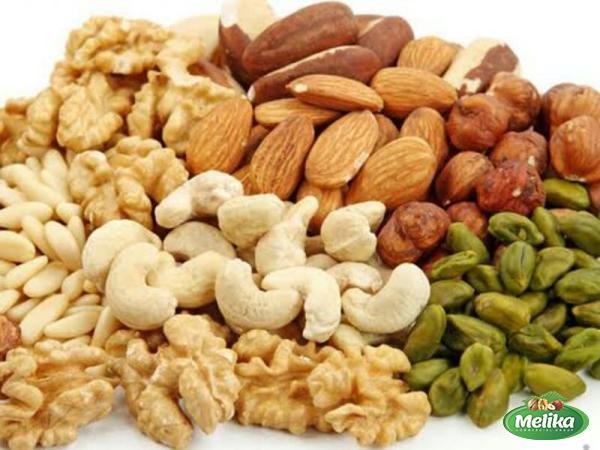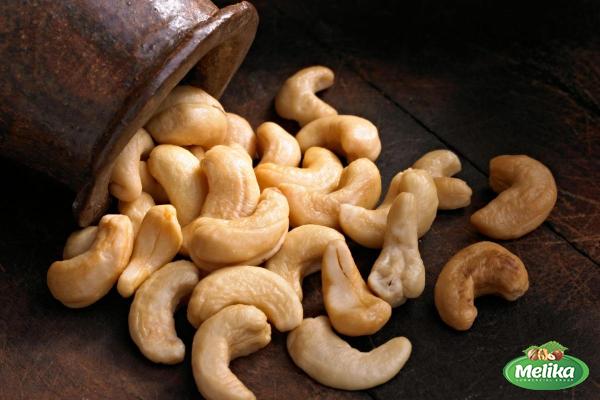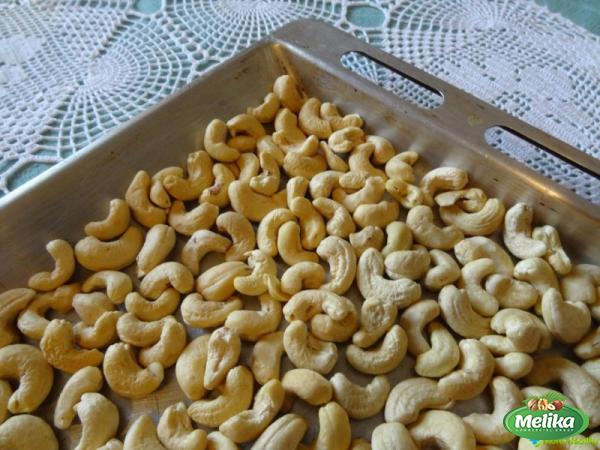Cashews, scientifically known as Anacardium occidentale, are popular tree nuts that are native to northeastern Brazil. Although primarily known for their delicious taste and crunchy texture, cashews also boast impressive nutritional benefits. While most people commonly associate cashews with a simple snack or as an ingredient in common recipes, a deeper understanding of the cashew seed reveals its versatility and potential uses across several industries, from culinary to medicinal to industrial. In this article, we will delve into the various aspects of cashew seeds, including their nutritional profile, potential health benefits, culinary uses, and unexpected applications in distinct fields. 1. Nutritional Profile: Cashew nuts, which are technically seeds, are packed with essential nutrients that make them a healthy addition to any diet. They are a good source of healthy fats, including monounsaturated and polyunsaturated fats, which promote heart health and contribute to reducing bad (LDL) cholesterol levels. Cashew seeds also contain protein, dietary fiber, and various vitamins and minerals, such as magnesium, phosphorus, zinc, and iron. They are also notably rich in antioxidants, which are compounds that help protect the body against oxidative stress and chronic diseases. 2. Health Benefits: a. Heart Health: Cashews’ monounsaturated and polyunsaturated fats, combined with their high magnesium content, contribute to heart health and help lower the risk of cardiovascular diseases. b. Weight Management: Despite being rich in fats, cashews have been associated with better weight management and lower body mass index (BMI) due to their satiating properties and potential effect on metabolism. c. Blood Sugar Control: Cashews have a low glycemic index and may help stabilize blood sugar levels, making them a suitable snack choice for individuals with diabetes or those looking to prevent blood sugar spikes. d. Bone Health: Cashew nuts offer a good source of minerals such as magnesium, phosphorus, and calcium, which are essential for maintaining strong and healthy bones. e. Eye Health: The presence of antioxidants, such as lutein and zeaxanthin, in cashews contribute to healthy vision and may potentially reduce the risk of age-related macular degeneration. f. Immune System Support: Cashews contain essential vitamins and minerals, including Vitamin C and zinc, which contribute to a healthy immune system. 3. Culinary Uses: Cashews are widely used in the culinary world, adding texture, flavor, and creaminess to various dishes. They can be consumed raw, roasted, salted, or unsalted, and can be used as a primary ingredient, garnish, or even transformed into various non-dairy products. Some common culinary uses of cashews include: a. Snacking: Cashews are a popular snack both on their own and as part of mixed nut assortments. b. Baking and Confections: Cashews are used in baking cakes, cookies, bread, and are often found in confections such as chocolate bars and fudge. c. Vegan Dairy Alternatives: Cashews can be blended with water to produce a creamy cashew milk or used to create plant-based alternatives like cashew-based cheese, creams, and yogurts. d. Nut Butters: Cashew butter, similar to peanut or almond butter, is made by grinding roasted cashews into a smooth and spreadable paste. e. Savory Dishes: Cashews add a delightful crunch and creaminess to various savory dishes, including stir-fries, curries, and salads. 4. Industrial Applications: Cashew seeds find applications beyond the culinary industry and are utilized in several industrial sectors. Some notable examples include: a. Cashew Shell Oil: The cashew shell can be processed to extract cashew shell oil, which has various industrial uses, including coatings, varnishes, lubricants, and preservatives for electrical equipment. b. Cashew Husk: The outer husk of the cashew seed can be used as a renewable source of energy as biofuel or as a raw material for production of animal feed or compost. c. Medicinal Uses: Cashew seeds have been traditionally used in alternative medicine for treating conditions such as toothaches, ulcers, and diarrhea. Studies on the potential health benefits of cashew seed extracts, such as antimicrobial and anti-inflammatory properties, are ongoing. Conclusion: Cashew seeds are more than just a delicious and versatile nut; they offer a plethora of health benefits, culinary uses, and applications in various industries. From their heart-healthy fats to their potential for weight management and blood sugar control, incorporating cashews into one’s diet can be an excellent choice for overall well-being. Additionally, their adaptability lends itself to numerous culinary applications, allowing for creative experimentation in both sweet and savory dishes. Moreover, the cashew seed’s remarkable properties extend into the industrial world, with potential applications in fields such as oil production and renewable energy. By recognizing the value and potential of the cashew seed, individuals can explore the diverse benefits and applications of this remarkable nut. Cashews, scientifically known as Anacardium occidentale, are popular tree nuts that are native to northeastern Brazil.

nuts
 Although primarily known for their delicious taste and crunchy texture, cashews also boast impressive nutritional benefits. While most people commonly associate cashews with a simple snack or as an ingredient in common recipes, a deeper understanding of the cashew seed reveals its versatility and potential uses across several industries, from culinary to medicinal to industrial. In this article, we will delve into the various aspects of cashew seeds, including their nutritional profile, potential health benefits, culinary uses, and unexpected applications in distinct fields. 1. Nutritional Profile: Cashew nuts, which are technically seeds, are packed with essential nutrients that make them a healthy addition to any diet. They are a good source of healthy fats, including monounsaturated and polyunsaturated fats, which promote heart health and contribute to reducing bad (LDL) cholesterol levels. Cashew seeds also contain protein, dietary fiber, and various vitamins and minerals, such as magnesium, phosphorus, zinc, and iron. They are also notably rich in antioxidants, which are compounds that help protect the body against oxidative stress and chronic diseases. 2. Health Benefits: a. Heart Health: Cashews’ monounsaturated and polyunsaturated fats, combined with their high magnesium content, contribute to heart health and help lower the risk of cardiovascular diseases. These fats have been associated with reducing triglyceride levels and improving overall cholesterol profiles. b. Weight Management: Despite being rich in fats, cashews have been associated with better weight management and lower body mass index (BMI) due to their satiating properties and potential effect on metabolism. The combination of protein, fiber, and healthy fats in cashews helps keep you full for longer, aiding in portion control and reducing calorie consumption. c. Blood Sugar Control: Cashews have a low glycemic index and may help stabilize blood sugar levels, making them a suitable snack choice for individuals with diabetes or those looking to prevent blood sugar spikes. The fiber content in cashews also aids in slowing down the absorption of glucose, which can help regulate blood sugar levels. d. Bone Health: Cashew nuts offer a good source of minerals such as magnesium, phosphorus, and calcium, which are essential for maintaining strong and healthy bones. These minerals contribute to bone density and help prevent conditions such as osteoporosis. e. Eye Health: The presence of antioxidants, such as lutein and zeaxanthin, in cashews contribute to healthy vision and may potentially reduce the risk of age-related macular degeneration. These antioxidants help protect the eyes from damage caused by free radicals and harmful ultraviolet rays. f. Immune System Support: Cashews contain essential vitamins and minerals, including Vitamin C and zinc, which contribute to a healthy immune system. Vitamin C supports the production of white blood cells, while zinc helps with cell growth and repair. 3. Culinary Uses: Cashews are widely used in the culinary world, adding texture, flavor, and creaminess to various dishes. They can be consumed raw, roasted, salted, or unsalted, and can be used as a primary ingredient, garnish, or even transformed into various non-dairy products. Some common culinary uses of cashews include: a. Snacking: Cashews are a popular snack both on their own and as part of mixed nut assortments. Their natural creaminess and mild sweetness make them a satisfying snack option. b. Baking and Confections: Cashews are used in baking cakes, cookies, bread, and are often found in confections such as chocolate bars and fudge. Chopped or ground cashews can add a delightful crunch and nutty flavor to baked goods. c. Vegan Dairy Alternatives: Cashews can be blended with water to produce a creamy cashew milk or used to create plant-based alternatives like cashew-based cheese, creams, and yogurts.
Although primarily known for their delicious taste and crunchy texture, cashews also boast impressive nutritional benefits. While most people commonly associate cashews with a simple snack or as an ingredient in common recipes, a deeper understanding of the cashew seed reveals its versatility and potential uses across several industries, from culinary to medicinal to industrial. In this article, we will delve into the various aspects of cashew seeds, including their nutritional profile, potential health benefits, culinary uses, and unexpected applications in distinct fields. 1. Nutritional Profile: Cashew nuts, which are technically seeds, are packed with essential nutrients that make them a healthy addition to any diet. They are a good source of healthy fats, including monounsaturated and polyunsaturated fats, which promote heart health and contribute to reducing bad (LDL) cholesterol levels. Cashew seeds also contain protein, dietary fiber, and various vitamins and minerals, such as magnesium, phosphorus, zinc, and iron. They are also notably rich in antioxidants, which are compounds that help protect the body against oxidative stress and chronic diseases. 2. Health Benefits: a. Heart Health: Cashews’ monounsaturated and polyunsaturated fats, combined with their high magnesium content, contribute to heart health and help lower the risk of cardiovascular diseases. These fats have been associated with reducing triglyceride levels and improving overall cholesterol profiles. b. Weight Management: Despite being rich in fats, cashews have been associated with better weight management and lower body mass index (BMI) due to their satiating properties and potential effect on metabolism. The combination of protein, fiber, and healthy fats in cashews helps keep you full for longer, aiding in portion control and reducing calorie consumption. c. Blood Sugar Control: Cashews have a low glycemic index and may help stabilize blood sugar levels, making them a suitable snack choice for individuals with diabetes or those looking to prevent blood sugar spikes. The fiber content in cashews also aids in slowing down the absorption of glucose, which can help regulate blood sugar levels. d. Bone Health: Cashew nuts offer a good source of minerals such as magnesium, phosphorus, and calcium, which are essential for maintaining strong and healthy bones. These minerals contribute to bone density and help prevent conditions such as osteoporosis. e. Eye Health: The presence of antioxidants, such as lutein and zeaxanthin, in cashews contribute to healthy vision and may potentially reduce the risk of age-related macular degeneration. These antioxidants help protect the eyes from damage caused by free radicals and harmful ultraviolet rays. f. Immune System Support: Cashews contain essential vitamins and minerals, including Vitamin C and zinc, which contribute to a healthy immune system. Vitamin C supports the production of white blood cells, while zinc helps with cell growth and repair. 3. Culinary Uses: Cashews are widely used in the culinary world, adding texture, flavor, and creaminess to various dishes. They can be consumed raw, roasted, salted, or unsalted, and can be used as a primary ingredient, garnish, or even transformed into various non-dairy products. Some common culinary uses of cashews include: a. Snacking: Cashews are a popular snack both on their own and as part of mixed nut assortments. Their natural creaminess and mild sweetness make them a satisfying snack option. b. Baking and Confections: Cashews are used in baking cakes, cookies, bread, and are often found in confections such as chocolate bars and fudge. Chopped or ground cashews can add a delightful crunch and nutty flavor to baked goods. c. Vegan Dairy Alternatives: Cashews can be blended with water to produce a creamy cashew milk or used to create plant-based alternatives like cashew-based cheese, creams, and yogurts.
Specifications of nuts
 The natural fat content in cashews makes them a suitable ingredient for creating creamy and dairy-free alternatives. d. Nut Butters: Cashew butter, similar to peanut or almond butter, is made by grinding roasted cashews into a smooth and spreadable paste. Cashew butter can be used as a healthier alternative to spreads and can be enjoyed on toast, sandwiches, or used as a dip. e. Savory Dishes: Cashews add a delightful crunch and creaminess to various savory dishes, including stir-fries, curries, and salads. They can be used as a topping, mixed into rice or grain-based dishes, or ground and used as a coating for proteins like chicken or fish. 4. Industrial Applications: Cashew seeds find applications beyond the culinary industry and are utilized in several industrial sectors. Some notable examples include: a. Cashew Shell Oil: The cashew shell can be processed to extract cashew shell oil, which has various industrial uses, including coatings, varnishes, lubricants, and preservatives for electrical equipment. Cashew shell oil has natural heat resistance and water repellent properties, making it suitable for protective coatings. b. Cashew Husk: The outer husk of the cashew seed can be used as a renewable source of energy as biofuel or as a raw material for production of animal feed or compost. The husk contains a high amount of cellulose, which can be converted into bioethanol or biogas. c. Medicinal Uses: Cashew seeds have been traditionally used in alternative medicine for treating conditions such as toothaches, ulcers, and diarrhea. Various parts of the cashew plant, including leaves, bark, and seeds, have been studied for their potential therapeutic properties. Extracts from cashew seeds have shown antimicrobial, anti-inflammatory, and wound-healing properties. 5. Global Market and Trends: The cashew industry has seen significant growth over the years, driven by increasing consumer demand for healthy snacks and plant-based alternatives. According to market research, the global cashew market is expected to reach USD 11.9 billion by 2027, with a compound annual growth rate (CAGR) of 6.8% from 2020 to 2027. Factors such as rising health consciousness, dietary preferences for plant-based foods, and increasing awareness of the nutritional benefits of cashews are contributing to market growth. Additionally, the versatile culinary uses and the growing popularity of vegan and dairy-free products, further propel the demand for cashews and cashew-based alternatives.
The natural fat content in cashews makes them a suitable ingredient for creating creamy and dairy-free alternatives. d. Nut Butters: Cashew butter, similar to peanut or almond butter, is made by grinding roasted cashews into a smooth and spreadable paste. Cashew butter can be used as a healthier alternative to spreads and can be enjoyed on toast, sandwiches, or used as a dip. e. Savory Dishes: Cashews add a delightful crunch and creaminess to various savory dishes, including stir-fries, curries, and salads. They can be used as a topping, mixed into rice or grain-based dishes, or ground and used as a coating for proteins like chicken or fish. 4. Industrial Applications: Cashew seeds find applications beyond the culinary industry and are utilized in several industrial sectors. Some notable examples include: a. Cashew Shell Oil: The cashew shell can be processed to extract cashew shell oil, which has various industrial uses, including coatings, varnishes, lubricants, and preservatives for electrical equipment. Cashew shell oil has natural heat resistance and water repellent properties, making it suitable for protective coatings. b. Cashew Husk: The outer husk of the cashew seed can be used as a renewable source of energy as biofuel or as a raw material for production of animal feed or compost. The husk contains a high amount of cellulose, which can be converted into bioethanol or biogas. c. Medicinal Uses: Cashew seeds have been traditionally used in alternative medicine for treating conditions such as toothaches, ulcers, and diarrhea. Various parts of the cashew plant, including leaves, bark, and seeds, have been studied for their potential therapeutic properties. Extracts from cashew seeds have shown antimicrobial, anti-inflammatory, and wound-healing properties. 5. Global Market and Trends: The cashew industry has seen significant growth over the years, driven by increasing consumer demand for healthy snacks and plant-based alternatives. According to market research, the global cashew market is expected to reach USD 11.9 billion by 2027, with a compound annual growth rate (CAGR) of 6.8% from 2020 to 2027. Factors such as rising health consciousness, dietary preferences for plant-based foods, and increasing awareness of the nutritional benefits of cashews are contributing to market growth. Additionally, the versatile culinary uses and the growing popularity of vegan and dairy-free products, further propel the demand for cashews and cashew-based alternatives.
buy nuts
 6. Challenges and Opportunities: While the cashew industry presents numerous opportunities, it also faces certain challenges. Cashew cultivation and processing require specific climatic conditions, which limit the regions suitable for cashew production to mainly tropical and subtropical areas. Factors such as climate change, pests and diseases, and labor-intensive cultivation practices can affect cashew production and the overall supply chain. However, advancements in agricultural practices, including improved crop management techniques, disease-resistant varieties, and sustainable farming practices, offer solutions to mitigate these challenges and ensure a stable supply of cashews. 7. Sustainable Practices and Fair Trade: Sustainability and fair trade practices are gaining importance in the cashew industry. Many companies are actively promoting sustainable farming practices, such as organic cultivation, water conservation, and reforestation efforts. Fair trade initiatives aim to ensure fair wages, safe working conditions, and social and environmental standards for cashew producers. By supporting sustainable and fair trade practices, consumers can contribute to the preservation of ecosystems and the improvement of livelihoods for cashew farmers. 8. Future Potential and Innovation: The cashew industry continues to evolve with innovations and new product developments. Researchers are exploring the potential of cashew byproducts, such as cashew apple, for value addition and waste reduction. Cashew-based snacks, energy bars, and functional beverages are gaining popularity among health-conscious consumers. Furthermore, ongoing research on the medicinal properties and health benefits of cashew seeds may uncover new therapeutic applications and opportunities for the nutraceutical industry. Conclusion: Cashew seeds are more than just a delicious and versatile nut; they offer a plethora of health benefits, culinary uses, and applications in various industries. From their heart-healthy fats to their potential for weight management and blood sugar control, incorporating cashews into one’s diet can be an excellent choice for overall well-being. Additionally, their adaptability lends itself to numerous culinary applications, allowing for creative experimentation in both sweet and savory dishes. Moreover, the cashew seed’s remarkable properties extend into the industrial world, with potential applications in fields such as oil production, renewable energy, and alternative medicine. By recognizing the value and potential of the cashew seed, individuals can explore the diverse benefits and applications of this remarkable nut, while supporting sustainable and fair trade practices in the cashew industry.
6. Challenges and Opportunities: While the cashew industry presents numerous opportunities, it also faces certain challenges. Cashew cultivation and processing require specific climatic conditions, which limit the regions suitable for cashew production to mainly tropical and subtropical areas. Factors such as climate change, pests and diseases, and labor-intensive cultivation practices can affect cashew production and the overall supply chain. However, advancements in agricultural practices, including improved crop management techniques, disease-resistant varieties, and sustainable farming practices, offer solutions to mitigate these challenges and ensure a stable supply of cashews. 7. Sustainable Practices and Fair Trade: Sustainability and fair trade practices are gaining importance in the cashew industry. Many companies are actively promoting sustainable farming practices, such as organic cultivation, water conservation, and reforestation efforts. Fair trade initiatives aim to ensure fair wages, safe working conditions, and social and environmental standards for cashew producers. By supporting sustainable and fair trade practices, consumers can contribute to the preservation of ecosystems and the improvement of livelihoods for cashew farmers. 8. Future Potential and Innovation: The cashew industry continues to evolve with innovations and new product developments. Researchers are exploring the potential of cashew byproducts, such as cashew apple, for value addition and waste reduction. Cashew-based snacks, energy bars, and functional beverages are gaining popularity among health-conscious consumers. Furthermore, ongoing research on the medicinal properties and health benefits of cashew seeds may uncover new therapeutic applications and opportunities for the nutraceutical industry. Conclusion: Cashew seeds are more than just a delicious and versatile nut; they offer a plethora of health benefits, culinary uses, and applications in various industries. From their heart-healthy fats to their potential for weight management and blood sugar control, incorporating cashews into one’s diet can be an excellent choice for overall well-being. Additionally, their adaptability lends itself to numerous culinary applications, allowing for creative experimentation in both sweet and savory dishes. Moreover, the cashew seed’s remarkable properties extend into the industrial world, with potential applications in fields such as oil production, renewable energy, and alternative medicine. By recognizing the value and potential of the cashew seed, individuals can explore the diverse benefits and applications of this remarkable nut, while supporting sustainable and fair trade practices in the cashew industry.











Your comment submitted.